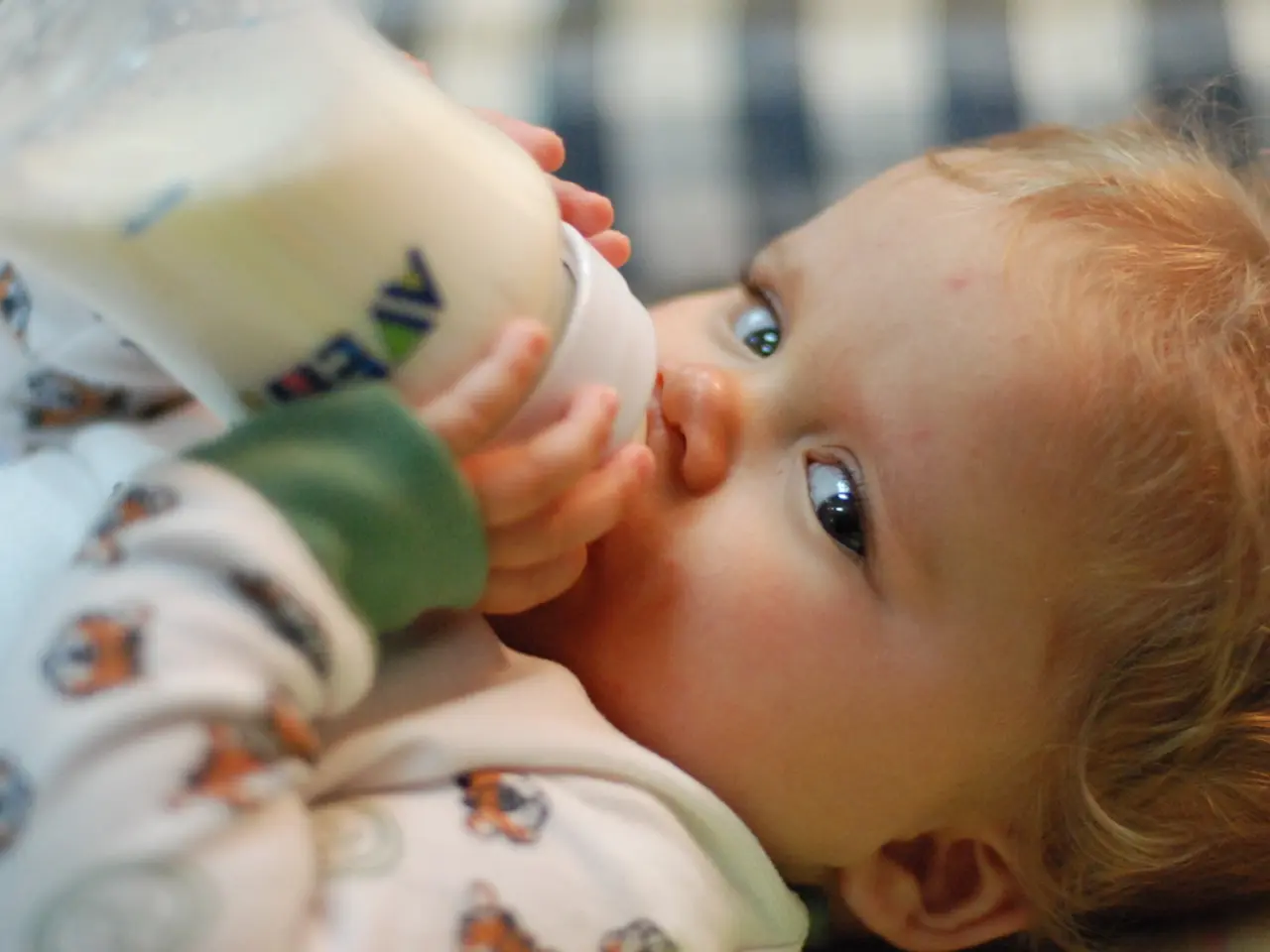Nurturing Through Breastfeeding: Optimal Selection
Breastfeeding, a natural practice for mothers and babies, offers a multitude of long-term health benefits. These benefits extend to both the infant and the mother, providing protection against chronic diseases, enhancing development, and offering emotional and physical health protections.
For the baby, breastfeeding significantly reduces the risk of several health issues. Research suggests that breastfed infants have a lower risk of developing obesity, type 2 diabetes, asthma, allergies, and certain childhood cancers. Breastfeeding also provides a protective shield against Sudden Infant Death Syndrome (SIDS).
Breastfed children tend to perform better on intelligence tests, show stronger speech and sensory development, and may stay in school longer. This is attributed to the nutrients and physical bonding during breastfeeding, which aids in brain and sensory development. Breast milk also contains protective antibodies that help shield infants from common illnesses.
The benefits for the mother are equally significant. Breastfeeding reduces the risk of breast and ovarian cancers, type 2 diabetes, and postpartum depression. Some research also suggests it may delay early menopause, potentially reducing risks related to bone health and other chronic conditions.
Breastfeeding fosters strong emotional bonding and attachment through the release of oxytocin in the mother, promoting feelings of love and security.
In summary, breastfeeding offers a myriad of long-term benefits for both mother and child. These include reduced risks of chronic diseases, enhanced development, immune protection, and emotional benefits. Breastfeeding is a foundational practice for lifelong health and well-being.
References:
- American Academy of Pediatrics (2021). Breastfeeding and the Use of Human Milk. [online] Available at: https://www.healthychildren.org/English/ages-stages/baby/breastfeeding/Pages/Breastfeeding-and-the-Use-of-Human-Milk.aspx
- Food and Rural Economics Division, Economic Research Service, USDA (2019). The Economics of Breastfeeding. [online] Available at: https://www.ers.usda.gov/topics/rural-economy/rural-development/breastfeeding/
- Alma Saddam, OSU Extension, Human Nutrition (2020). Benefits of Breastfeeding Fact Sheet. [online] Available at: https://extension.osu.edu/sites/extension/files/dv/2020/07/Benefits-of-Breastfeeding-fact-sheet.pdf
- Food and Drug Administration (2020). Feeding Babies: Formula Feeding and Breastfeeding. [online] Available at: https://www.fda.gov/for-parents-and-caregivers/babies-toddlers/breastfeeding-infant-formula-feeding-and-special-considerations/feeding-babies-formula-feeding-and-breastfeeding
- In addition to the physical health benefits for infants, such as reduced risks of obesity, type 2 diabetes, and certain childhood cancers, breastfed children often perform better on intelligence tests due to the nutrients and physical bonding during breastfeeding, which aids in brain development.
- The mental health of mothers can also be positively impacted by breastfeeding, as it may lower the risk of postpartum depression and contribute to stronger emotional bonding and attachment through the release of oxytocin in the mother.
- Enhancing family health, research suggests that breastfeeding offers protection against Sudden Infant Death Syndrome (SIDS), while also providing benefits for women's health, such as reduced risks of breast and ovarian cancers and type 2 diabetes.




